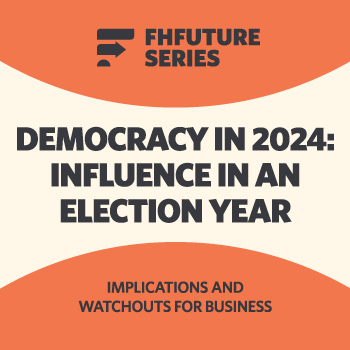Friday TechMunch: Who Are The 11%?
The UK Office for National Statistics recently released a report that found 11% of UK adults today have never used the internet in any capacity. That means that a staggering 5.9 million adults in Britain have never accessed online content.
Considering 35m people have a smartphone in the UK (over 30% of these users look at their smartphone within 5 minutes of waking) and fixed broadband Internet connections are now in use by 91% of households, 11% is a surprisingly high figure.
So who are the 11% and why are they so far removed from the connected devices that the vast majority of the country live by?
Though the statistics don’t directly address this question, it was telling to read that only 68% of disabled people admit to using the internet with any regularity and 27.4% of disabled people have never used the World Wide Web at all. The internet may have become a system that connects the globe, providing unlimited access to information and entertainment, but it’s clear that not everyone is able to make use of it.
Dan Howdle, telecoms expert and editor-in-chief of broadband TV and mobile comparison site cable.co.uk said: “From the point of view of webmasters, this is often not because they wish to ignore blind or deaf people, or those with disabilities, from enjoying their content to the same level as anyone else, but because the steps that need to be taken to make it accessible to everyone are resource-intensive.”
Fortunately, this is not a problem that has gone completely unnoticed. Thanks to speech and braille browsers and the choice of different font sizes – there has been a small, 0.2% increase in disabled people who use the net since Q1 of 2014. Nonetheless, there is still work to be done.
A number of charities and organisations have noticed the discrepancy and are striving to make the Web even more accessible to the disabled population. AbilityNet and Community 2.0 are two organisations hoping to tackle this issue in the UK and Facebook’s internet.org may also be able to do some good here – the online platform works with developers to ‘connect people who are unconnected’. Facebook’s current projects are mainly focused on parts of the poorer parts of the world where internet access is harder to come by but it could one day make a positive impact for those with different abilities as well.
Minister Lesley Griffiths, speaking for Disability Wales and Community 2.0 late last year, commented: “Arguably, disabled people have most to gain from digital technologies. It can help reduce isolation and enable independent living by giving disabled people the same choice and control over their lives as everyone else.”
Let’s hope that by the time ONS repeats the survey in 2016, a good proportion of the 11% will have as active on online life as the rest of us.
Find Out More
-
Democracy in 2024: Influence in an election year
May 2, 2024
-
Platinum CMS Award
March 13, 2024


